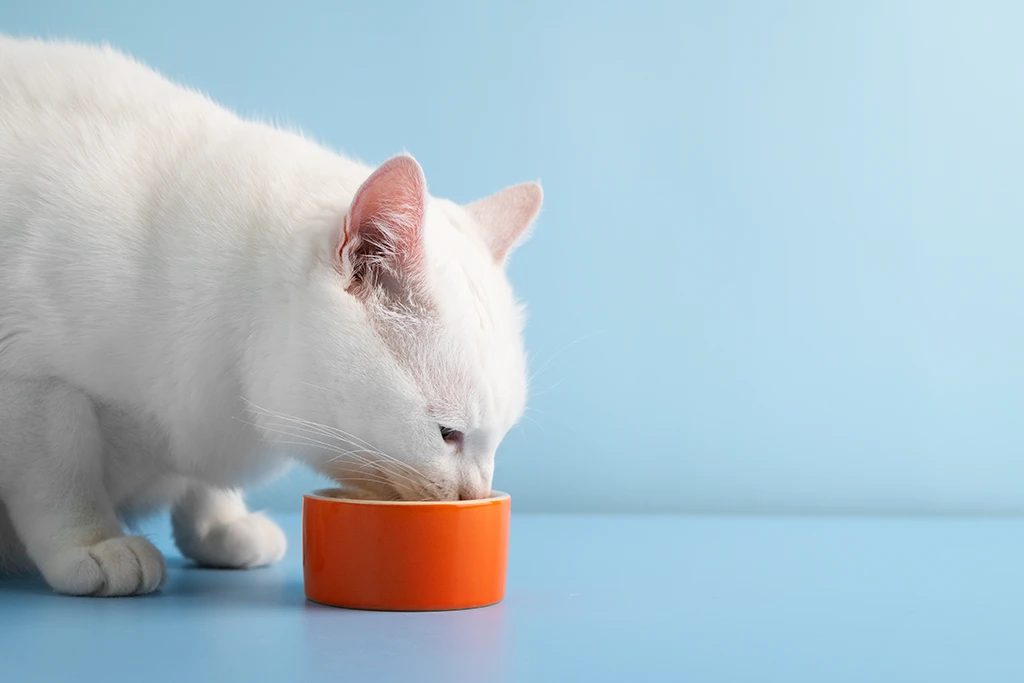

Dogs frequently have urinary tract infections (UTIs), particularly senior females (Thompson, M., et al., 2011). UTIs occur when bacteria, such as E.coli, enter the urethra and travel to the bladder, causing inflammation and infection. If left untreated, UTIs lead to serious complications like bladder stones, kidney infections, and even kidney failure. Natural remedies treat dog UTIs, especially early on or as a prophylactic precaution, instead of drugs. These natural approaches help promote overall urinary tract health and reduce the likelihood of recurring infections.
This article explores some natural remedies and lifestyle changes that help relieve symptoms of UTIs in dogs and support long-term urinary tract health. From dietary tweaks to simple home remedies, these solutions are aimed at keeping a dog comfortable and reducing the risk of recurring infections.
Table of Contents
ToggleUTIs are a result of harmful bacteria, often E. coli, infiltrating the urinary tract, causing discomfort, inflammation, and infection. Spotting a UTI early is crucial to prevent further complications. Below is a list of common UTI symptoms in dogs:
Frequent urination: a dog wants to go out more often or have “accidents” indoors.
Straining to urinate: Signs of pain when urinating, including whining or whimpering, are common.
Blood in urine or strong-smelling urine: Both are signs of infection or urinary tract irritation.
Excessive licking of the genital area: This is often a dog’s way of trying to soothe the discomfort.
Lethargy and loss of appetite: Advanced infections cause fatigue and other systemic symptoms.
Consult the dog’s veterinarian if any of these symptoms are noticed. They perform a urinalysis, urine culture, or additional diagnostics to confirm the presence of a UTI and rule out other health issues, such as bladder stones or tumors.

While conventional treatment often involves antibiotics, there are several natural remedies that complement this treatment and, in some cases, help prevent recurrent infections. Natural remedies focus on creating an environment within a dog’s body that’s hostile to harmful bacteria but supportive of beneficial bacteria. They work by adjusting the dog’s pH balance, soothing urinary tract inflammation, and promoting a healthy immune response.
Dive into the most popular natural remedies for UTIs in dogs, all of which help relieve symptoms and support a healthy urinary tract.
Cranberries are often the first go-to for UTI relief. Cranberries contain compounds particularly proanthocyanidins, that prevent bacteria, particularly E. coli, from adhering to the bladder walls (Howell, A., et al., 2010). They’re also high in antioxidants and vitamin C, which help support the dog’s immune system and fight off infections. For UTIs, cranberry supplements made specifically for dogs are the best bet, cranberry juice is often too sugary and worsens canine UTI symptoms.
Adding cranberries in powdered form or cranberry supplements to the dog’s diet helps prevent bacterial urinary tract infections. Just remember to consult the dog’s veterinarian on the appropriate dosage, as too much cranberry has side effects.
Pro Tip: Be wary of cranberry products containing artificial ingredients, sugars, or juices. Stick to pure cranberry or specially formulated dog cranberry supplements.
Organic apple cider vinegar (ACV) is a simple, cost-effective remedy for managing UTI symptoms in dogs. An investigative study showed that “Apple cider vinegar effectively reduces urolithiasis-related biochemical parameters and improves kidney architecture in experimental rats,” (Hegde, K., Shetty, S., & Pratheeksha, M., 2022). ACV is known to lower the pH of urine, making it difficult for bacteria to thrive. This adjustment in pH levels creates an environment in the bladder that’s less hospitable to infections, while also potentially soothing urinary tract inflammation.
Start with small amounts, like 1 teaspoon for small dogs and up to 1 tablespoon for larger dogs, mixing it with water or food. Some dogs are reluctant to drink water with vinegar, so try to disguise it with low-sodium chicken broth. ACV also supports digestion and strengthens the immune system, helping to prevent UTIs from recurring.
Tip for Pet Parents: Always introduce ACV gradually and consult the dog’s vet before using it, especially if a dog has pre-existing kidney issues.
D-mannose is a natural sugar related to glucose that’s remarkably effective in treating and preventing E. coli-based UTIs. A study showed that “D-Mannose treatment effectively prevents urinary tract infections caused by E. coli bacteria and blocks the adhesion of E. coli to bladder cells,” (Taleb, N., 2018). Unlike antibiotics, D-Mannose doesn’t kill healthy bacteria, which means it won’t upset the balance of the dog’s gut flora.
D-Mannose are found in powder or capsule form. As with all supplements, check with the dog’s veterinarian for the correct dosage based on the dog’s body weight and specific health needs.
One of the simplest yet most powerful tools in a UTI-fighting arsenal is water. Increased water intake helps flush out the urinary tract, remove bacteria, and promote a healthy urinary environment.
To encourage hydration, check the ideas listed below.
Add water to a dog’s food. Wet or canned food naturally has more moisture, which is better for urinary health.
Provide ice cubes as a treat. Some dogs love to chew on ice cubes, which help increase water intake.
Low-sodium broth in water. Add a splash of low-sodium chicken or beef broth to a dog’s water bowl to make it more appealing.
Dehydration makes UTI symptoms worse, so keeping a dog well-hydrated is essential.
A balanced gut microbiome strengthens a dog’s immune system, which helps fight off bacterial infections in the urinary tract. Probiotics are beneficial bacteria that improve gut health and, in turn, support urinary tract health. A human study showed that “Probiotic interventions were effective in treatment and prevention of urogenital infections in women, including bacterial vaginosis, candidiasis, and urinary tract infections,” (Hanson, L., et al., 2016).
Choose a dog-specific probiotic or opt for plain, unsweetened yogurt (without artificial sweeteners) as an occasional treat.
Pet Parent Reminder: A healthy gut is essential not just for urinary health but for overall wellness. Consider making probiotics a staple in a dog’s diet.
CBD oil has become a popular holistic remedy for a variety of health concerns in dogs, including inflammation and pain associated with UTIs. CBD, derived from hemp, has anti-inflammatory properties that help soothe the urinary tract lining and reduce overall discomfort. While CBD doesn’t directly treat bacterial infections, it alleviates UTI symptoms like pain and inflammation, helping a dog feel more comfortable while other remedies work on addressing the infection itself. A systemic review showed that “CBD, CBG, and CBD+THC combination show a predominantly anti-inflammatory effect in vivo, while THC alone does not reduce pro-inflammatory or increase anti-inflammatory cytokines,” (Henshaw, F., et al., 2021).
Pro Tip: When considering CBD oil, choose a high-quality, pet-specific formula and consult the dog’s vet for the proper dosage based on the dog’s body weight.

Several herbs have shown promise in promoting urinary tract health. Check the herbal remedies listed below.
Marshmallow root is demulcent, which means it creates a soothing, protective layer along the urinary tract lining (Akbar, S., 2020). This helps alleviate irritation and promotes healing.
Horsetail is both antimicrobial and astringent (Alves, C., et al., 2019). It’s also rich in silica, which supports tissue health. However, use horsetail sparingly and only under veterinary guidance, as long-term use leads to health issues.
Word of Caution: Herbs are powerful, so always consult a veterinarian before adding them to a dog’s diet. Some herbs interact with medications or are toxic in large amounts.
A dog’s diet plays a significant role in their urinary health. By making a few adjustments, pet parents support a healthier urinary tract and potentially reduce the risk of UTIs.
Avoid Grain-Filled Dog Food: Certain grains, such as corn and wheat, increase the risk of yeast infections, which contribute to UTI symptoms. Opt for high-quality, grain-free dog food, or consider a raw diet that’s naturally low in carbs.
Focus on Moisture-Rich Foods: Canned wet food is higher in moisture content than kibble, making it ideal for urinary health. Fresh or Freeze-dried diets also contain more water and help keep a dog hydrated.
Healthy Additions: Including natural sources of vitamin C, such as small amounts of blueberries or pumpkin, also supports the immune system and urinary tract.
Natural remedies are just part of the picture. Good habits and regular care help keep UTIs at bay, especially if a dog is prone to urinary tract problems.
Frequent Bathroom Breaks: Don’t make a dog hold it for too long! Frequent urination helps keep the urinary tract flushed and reduces bacterial buildup. Make sure a dog has plenty of opportunities to relieve themselves throughout the day.
Practice Good Hygiene: Especially for female dogs, keeping the genital area clean is key in preventing infections. Wipe the area gently with a pet-safe wipe or a damp cloth, especially after playtime outdoors.
Maintain a Healthy Body Weight: Obesity puts added pressure on the bladder and worsens urinary tract issues. Ensure a dog is eating a balanced diet, and aim for regular exercise to maintain a healthy weight.
Boost Their Immune System: Supporting a dog’s immune system helps prevent infections. Probiotics, a balanced diet, and, if necessary, immune-supporting supplements all work to keep a dog’s immune defenses strong.
Routine Veterinary Visits: Even if natural remedies are utilized, regular checkups with the dog’s veterinarian are essential. Routine tests catch early signs of UTIs, kidney stones, or bladder stones before they become severe.
While natural remedies are effective for prevention and mild cases, they’re not always enough to treat severe infections. If a dog shows signs of pain, blood in the urine, fever, or lethargy, seek veterinary care. These are possible symptoms of a more serious underlying condition like kidney disease or bladder infections, which require antibiotics or other medical interventions.
The dog’s veterinarian recommends further tests, such as a urine culture or an ultrasound, to understand the full picture of the dog’s urinary health. Sometimes, a combination of conventional treatment and natural remedies offers the best approach to clearing infections and preventing them from coming back.
Natural remedies are effective for mild UTIs or as preventive support. However, for severe or persistent UTIs, antibiotics are necessary. Always consult the dog’s vet to determine the best course of action.
Common symptoms include frequent urination, straining to urinate, blood in the urine, strong-smelling urine, and excessive licking of the genital area. If these symptoms are noticed, reach out to the dog’s veterinarian for an accurate diagnosis.
Yes, cranberries are generally safe for dogs and help prevent bacteria from adhering to the urinary tract lining. Just be sure to use a dog-specific cranberry supplement and avoid sugary cranberry juice.
Start with 1 teaspoon for small dogs and up to 1 tablespoon for large dogs. Mix it into their water or food, but introduce it gradually and check with the vet first.
CBD oil doesn’t cure UTIs, but it helps relieve pain and reduce inflammation associated with the infection. It works best as a complementary remedy to ease symptoms while other treatments address the infection.
Try adding water to their food, offering ice cubes as treats, or adding a bit of low-sodium chicken or beef broth to their water bowl to make it more appealing.
Yes, probiotics support a healthy gut microbiome, which in turn strengthens the immune system. A strong immune system helps prevent bacterial infections, including UTIs, from taking hold.
Urinary tract infections (UTIs) in dogs present significant challenges for pet owners. However, with careful attention and the use of natural remedies, it is possible to enhance a dog’s comfort and health. Key supportive elements in maintaining urinary tract health include cranberries, apple cider vinegar, D-Mannose, various herbs, and ensuring proper hydration.
Before introducing any new remedies, consult their veterinarian, particularly if their dog has pre-existing health issues. By incorporating natural remedies alongside a balanced diet and preventive lifestyle practices, pet parents establish a strong defense against future UTIs.
Additionally, Paws and Claws CBD offers simple solutions to assist pet owners in managing their pet’s health effectively. Tracking a pet’s wellness journey is essential, as a healthy dog contributes to a happy household.
References

Table of Contents
Toggle